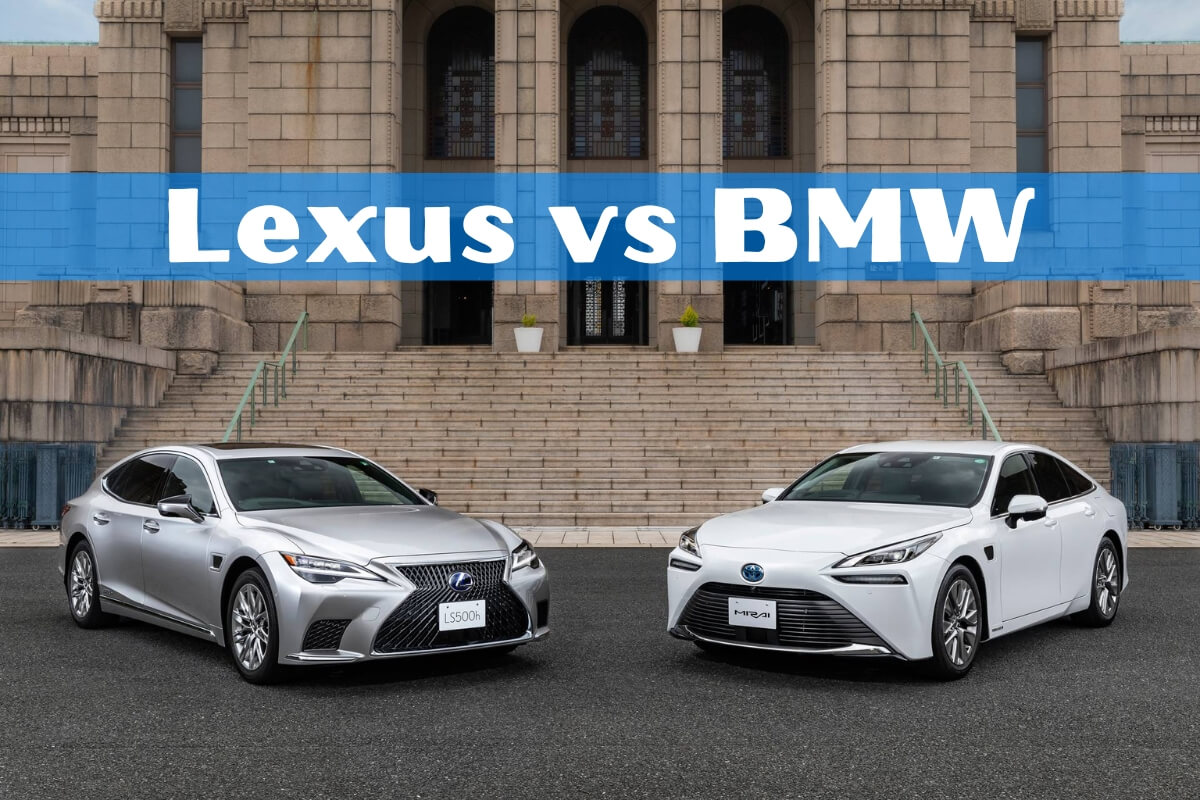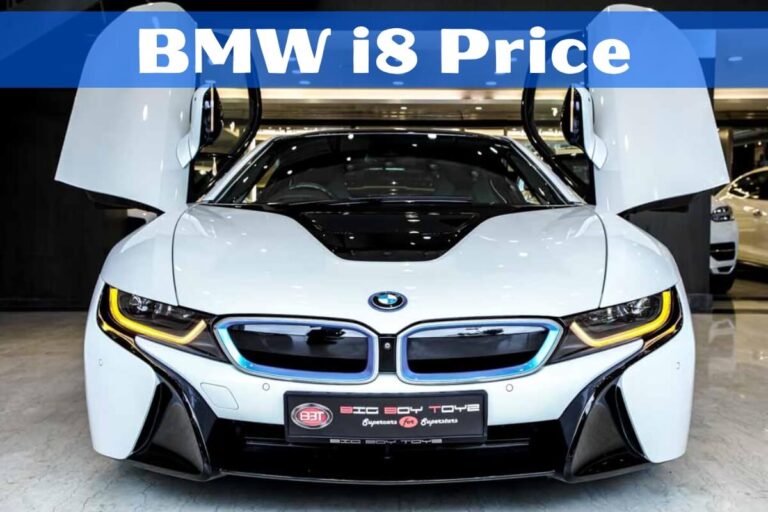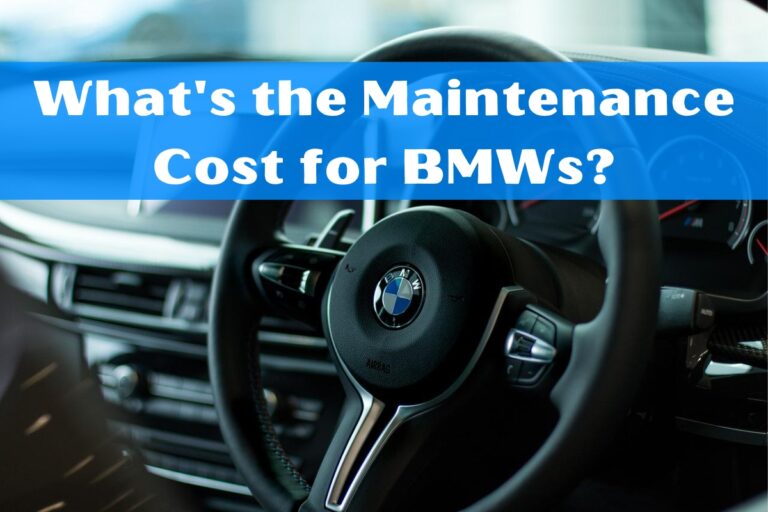Lexus vs BMW: The Ultimate Luxury Car Comparison Guide

Choosing the right luxury car brand can be a tough decision. Two of the most popular names in the game are Lexus and BMW. Both offer premium vehicles loaded with features, but they have distinct strengths and weaknesses.
As someone considering a luxury car purchase, you might be wondering – which one is the better choice between Lexus and BMW?
To help you make an informed decision, we’ll delve deep into the key differences between these two esteemed brands. We’ll compare everything from safety ratings and reliability to performance, comfort, technology, and more.
By the end of this guide, you’ll have a clear understanding of the pros and cons of each brand, making it easier to choose the one that best suits your needs and preferences.
So, let’s get started!
Prioritizing Safety: Lexus vs. BMW
Safety should be a top priority when buying any vehicle, especially a luxury one. Both Lexus and BMW take safety seriously, but their approaches differ.
Lexus equips most models with the Lexus Safety System+. This suite includes advanced features like:
- Pre-collision system with pedestrian detection
- Intelligent high-beam headlights
- Lane assistance
- Dynamic radar cruise control
Higher trim levels get the upgraded Lexus Safety System+ 2.5 and 3.0, adding extras like road sign recognition.
BMW, on the other hand, offers an Active Driving Assistant package with safety tech like:
- Forward collision warning
- Automatic emergency braking
- Blind-spot monitoring
- Lane departure warning
When it comes to safety ratings, Lexus consistently performs well. In 2020, it earned four Top Safety Pick awards from the Insurance Institute for Highway Safety (IIHS), compared to BMW’s single award.
Long-Term Reliability: Lexus Edges Out BMW
Reliability is crucial when investing in a luxury car. After all, you don’t want to deal with constant issues and repairs. In this area, Lexus has a clear advantage over BMW.
J.D. Power’s Vehicle Dependability Study measures problems in three-year-old vehicles. In 2023, Lexus ranked first with just 133 problems per 100 vehicles. That’s significantly better than the industry average of 186 issues.
BMW, on the other hand, scored 184 problems per 100 vehicles – far behind Lexus.
This isn’t a one-off occurrence either. Lexus has topped J.D. Power’s dependability rankings 10 times in the last 12 years. BMW, while still a reputable brand, has historically faced more reliability challenges.
Warranty Coverage: Lexus Offers More Protection
When you’re spending premium dollars on a luxury car, a robust warranty can provide valuable peace of mind. Let’s look at what Lexus and BMW offer:
Lexus provides:
- Basic Warranty: 4 years/50,000 miles
- Powertrain Warranty: 6 years/70,000 miles
BMW offers:
- New Vehicle Limited Warranty (including powertrain): 4 years/50,000 miles
While the basic warranties are similar, Lexus gives you an extra two years and 20,000 miles of powertrain coverage. That’s a significant advantage if you plan to keep your luxury car for several years.
Resale Value and Ownership Costs
Buying a luxury car is a major investment. So it’s important to consider long-term costs like depreciation and maintenance.
When it comes to resale value, Lexus dominates. In Kelley Blue Book’s 2023 Best Resale Value Awards, Lexus won the Best Luxury Brand title. BMW didn’t get any model recognized.
Maintenance costs are another area where Lexus has an edge. On average, Lexus owners report spending around $550 per year on upkeep. BMW owners, on the other hand, pay between $1,000 and $1,700 annually.
These factors combine to make Lexus vehicles generally less expensive to own over the long haul. If you’re looking to maximize your investment, that’s a major plus.
The Great Performance Debate: BMW vs. Lexus
Now, let’s discuss one of the most important aspects for many luxury car buyers – performance. Here, BMW and Lexus take somewhat different philosophies.
BMW is all about delivering an engaging “Ultimate Driving Machine” experience. Its vehicles, like the 3 Series and X3, emphasize precise handling, strong acceleration, and a sporty driving feel. If you’re an enthusiast who loves Canyon carving, BMW could be your pick.
Lexus prioritizes comfort and refinement over outright performance. While still offering potent engines, Lexus aims for a luxury driving experience tuned more for relaxed cruising. The IS sedan and RX SUV are good examples of this approach.
In terms of engines, both brands utilize turbocharged fours and sixes, plus hybrid options. But BMW tends to pack more power under the hood compared to similar Lexus models.
Ultimately, your performance preferences – whether it’s all-out thrills or luxurious composure – will guide you towards BMW or Lexus.
Cabin Comfort and Interior Design
Premium luxury doesn’t just come from a vehicle’s performance – the cabin experience matters just as much. So how do BMW and Lexus interiors stack up?
Lexus is laser-focused on creating serene, ultra-luxurious cabin environments. You’ll find top-notch leather, real wood trim, and plush surfaces galore in models like the ES sedan. Lexus also scores high marks for roominess and rear passenger space.
BMW takes a sportier tack with its interiors. The design is driver-centric, with great front seats and ergonomic controls. Premium materials are still present, but with more performance cues like contrast stitching. Great if you’re a keen driver who loves feeling connected to the car.
Both brands offer supremely comfortable interiors with great build quality. But your personality may align more with Lexus’s tranquil vibe or BMW’s enthusiast-friendly approach.
Cutting-Edge Technology For Connected Driving
Every modern luxury car needs to deliver the latest tech features and connectivity. Lexus and BMW both bring innovation to the table.
Lexus deploys its intuitive infotainment system with large touchscreens across the lineup. Smartphone integration, voice controls, and over-the-air updates keep things current. Lexus also offers advanced driver aids like adaptive cruise control.
BMW’s iDrive system has evolved into an industry-leading tech interface. With slick graphics, gesture controls, and connected data services, it enhances the driving experience. BMW also brings innovative safety tech to the mix.
While specific infotainment strengths vary, both Lexus and BMW deliver the cutting-edge tech modern luxury buyers expect. Do check out their latest offerings before deciding.
Diverse Model Lineups to Suit Your Lifestyle
One key advantage of going with an established luxury brand – whether Lexus or BMW – is the diverse range of models on offer. This ensures there’s likely an option to suit your specific needs and taste.
Lexus covers everything from compact sedans like the IS to larger luxury sedans (ES, LS), SUVs (UX, RX, GX, LX), and even high-performance coupes and convertibles like the LC. There are hybrid options, too, if efficiency is a priority.
BMW’s lineup is similarly extensive, with small cars like the 2 Series all the way up to full-size 7 Series sedans and X7 SUVs. Plus legendary performance icons like the M3 and high-end grand tourers like the 8 Series.
Both brands cater to most luxury buyer tastes and budgets. So whether you need a practical daily driver or stylish weekend cruiser, there should be a BMW or Lexus model to fit the bill.
The Final Verdict – Lexus vs. BMW: Which is Better?
After examining all the key factors like safety, reliability, warranties, performance, interiors, and model lineups, it’s clear that Lexus and BMW both bring incredible strengths to the luxury vehicle space.
If your top priorities are exceptional long-term reliability, lower maintenance costs, and maximizing your vehicle’s resale value, then Lexus is likely the smarter choice. The brand’s consistent quality and dependability shine through.
However, if you’re a driving enthusiast who craves thrilling performance and an engaging cabin experience, you’ll probably find BMW models more appealing. The “Ultimate Driving Machine” philosophy manifests in BMWs’ responsive handling and sporty character.
At the end of the day, there’s no definitive “best” brand between these two luxury giants.





